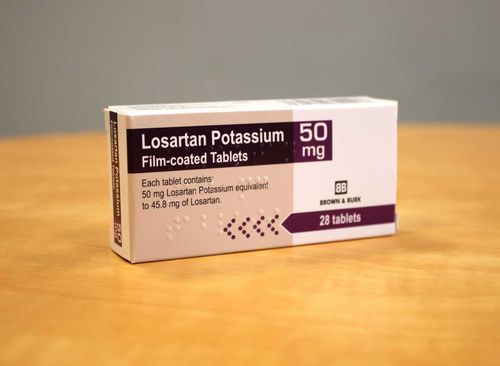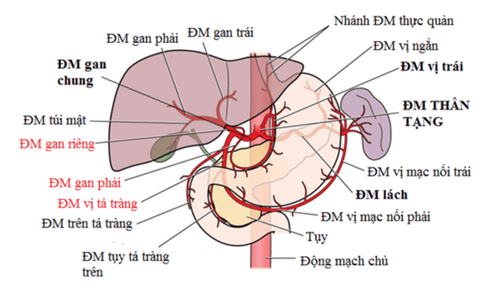This is an automatically translated article.
Each year about 1 in 50,000 children are diagnosed with nephrotic syndrome. The condition is usually first diagnosed in children between the ages of 2 and 5 years. Nephrotic syndrome in children is quite dangerous, parents need to promptly detect the early signs and take the child to the hospital early to avoid complications.1. What is nephrotic syndrome?
Nephrotic syndrome is a condition in which large amounts of protein (more specifically, albumin) are lost in the urine. This loss of albumin is sufficient to cause hypoproteinemia. On the other hand, protein has the effect of retaining water in the blood vessel, when blood protein is low, water will escape from the vessel lumen to the interstitial tissue and cause edema. Edema can occur in different areas of the body and at different times of the day. The most commonly affected areas include: eyes, abdomen, lower extremities and scrotum.2. Nephrotic syndrome in children
When albumin is lost in the urine, some special proteins called antibodies are also lost. Antibodies play a very important role, helping the body to fight the attack of disease-causing bacteria. Therefore, children with nephrotic syndrome are at high risk of infection when protein is lost. In addition, anticoagulant factors can also be lost in the urine. While blood clotting is very rare in children with nephrotic syndrome, it can occur in exceptional circumstances, when vomiting and diarrhea are accompanied by severe dehydration.
Trẻ bị hội chứng thận hư có nguy cơ bị nhiễm trùng cao
3. Causes of nephrotic syndrome in children?
Currently, we still don't know exactly what causes nephrotic syndrome, possibly due to an underactive immune system. Nephrotic syndrome in children is largely idiopathic, accounting for 90% of children aged 1-10 years. Nephrotic syndrome cannot be passed from person to person. It is very rare for children in the same family to have nephrotic syndrome, which only happens when the cause of the nephrotic syndrome is a rare genetic mutation.4. Treatment of nephrotic syndrome in children
The doctor will check the child's blood pressure, measure the height and weight. The child then needs to have blood and urine tests done to make a diagnosis. The baby is not having too much blood drawn and the body will make more to replace the amount of blood just taken.If it is confirmed that the child has nephrotic syndrome, the doctor will usually consider prescribing steroids for the child such as: Prednisone and Prednisolone. Most children (80%) will respond to treatment with complete resolution of urinary protein and edema within the first 2 weeks.
Pediatric nephrotic syndrome is considered to be in remission when urine protein is negative for 3 consecutive days. When a child shows signs of edema, he or she may be prescribed more medication to reduce swelling, usually a diuretic. If edema symptoms increase, the child may need to be hospitalized and receive diuretics or albumin infusion.
Side effects when treating children with nephrotic syndrome Prednisone/prednisolone is usually prescribed for a short time so very few side effects can appear. However, some side effects may appear including: faster hunger leading to rapid weight gain, behavioral changes such as irritability, increased blood pressure, increased blood sugar, upset stomach.
The drug can cause small cataracts but does not affect the child's vision. Although the bones of children treated with prednisone may have a slight decrease in mineral levels when performed with special tests (bone density tests), children with nephrotic syndrome who respond to prednisone rarely break bones or bone damage. Therefore, the treatment of bone diseases in children with nephrotic syndrome is not different from that of other children.
After the child is in remission with prednisone treatment, the child can eat the same foods as other children. Some children will feel very hungry during prednisone treatment and gain a lot of weight. Therefore, children with nephrotic syndrome should be encouraged to eat low-energy foods such as vegetables and fruits when hungry, instead of high-energy foods such as chips, cakes, cookies.
Vaccinate children with nephrotic syndrome

Trẻ bị hội chứng thận hư nên tiêm tất cả các loại vaccine theo chương trình tiêm chủng
Monitoring children's nephrotic syndrome at home Checking a child's early morning urine with a urine test strip will be very helpful for parents in monitoring their child's disease at home. It is not necessary to have a urine test every morning, but parents should do it every 1-2 days after the child has been on prednisone for 7 days or when the child's edema improves. When the urine test results for 3 consecutive days, there is no proteinuria or only traces, it shows that the disease is in remission. Early detection of proteinuria with a test strip can reduce the severity of relapses.
5. When to take your child to the doctor
In case the child is sick again, parents should take the child to see a doctor immediately when the child has one of the following symptoms: fever, severe abdominal pain, swelling or pain in the limbs, vomiting or diarrhea.If a child has a proteinuria of 3+ for 3 consecutive days, it means that the child has had a relapse of nephrotic syndrome, parents should take the child to see a doctor to restart the dose of prednisone/prednisolone 2mg/kg/day until the child is in remission, test for proteinuria negative or trace for 3 days, then reduce the dose of prednisone as prescribed by the doctor. If the child only has proteinuria for 1 or 2 days, it is completely normal, without edema, there is no need to return to prednisone and this phenomenon usually goes away on its own.
In case the child comes into contact with someone who has chickenpox, there is a risk of developing severe disease, so parents should pay attention to bring the child to see a doctor within 24 hours of exposure. When taking prednisone for a long time, children often need to increase the dose of prednisone each time they are sick, so it is important to consult a doctor if any unusual symptoms appear in your child.
At the Pediatric Endocrinology Clinic at Vinmec Central Park International Hospital specializing in the treatment of kidney and endocrine-related diseases: early puberty, growth retardation, nephrotic syndrome in children.
Pediatric endocrinology specialist clinic at Vinmec Central Park international general hospital led by Assoc. 30 years of experience in examination and treatment of pediatric endocrinology, pediatric kidney and other pediatric - neonatal problems. This is a place where parents can rest assured to receive advice and answer questions about their child's medical condition.
Working hours: 13h30 - 16h30 every Thursday (book an appointment in advance). Parents can register for child care HERE or contact hotline 0283 6221 188, 0283 6221 166 for detailed support.













